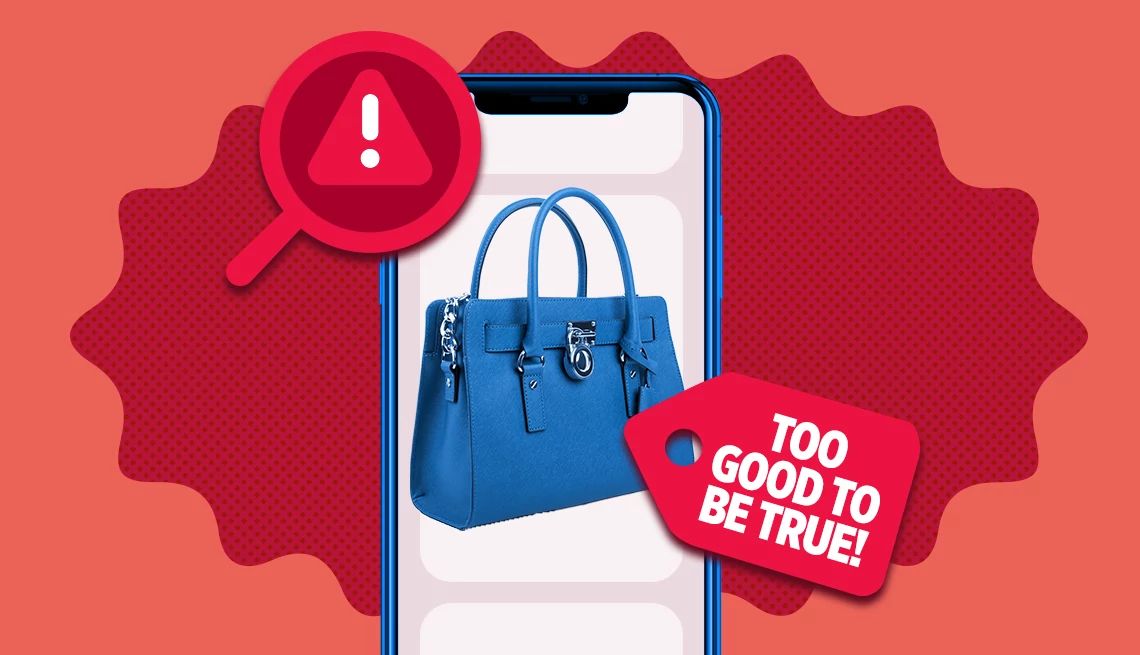AARP Hearing Center


This may have happened to you: You’re browsing social media and an ad pops up touting a beautiful pair of boots, a cool gadget, jewelry — whatever the algorithm determines will appeal to you. With just a few clicks, you’ve purchased the product and it’s soon on its way to your door. Unless it’s not. You might never receive it, or receive something vaguely similar, but definitely not what you paid for.
“A lot of it starts with passive scrolling through social media. We all do it,” says Melanie McGovern, spokesperson for the Better Business Bureau (BBB).
Many people keep payment information stored on their phone, so when they see an ad for that perfect scarf, “It’s easy to make a quick purchase without doing the due diligence — checking their website, BBB or investigating what the customer experience is with that company,” McGovern says.
Last year, more than half (54 percent) of Americans made holiday purchases through social media ads, up 10 percent from the previous year, according to Norton’s “2025 Norton Cyber Safety Insights Report: Holiday,” based on a survey of 1,000 U.S. consumers.
There’s a good chance that even more people will be clicking on those ads this year, notes Iskander Sanchez-Rola, director of AI and innovation for Norton. He adds that AI has made it stunningly easy for scammers to create extremely realistic-looking photos and videos that “even a year ago would look fake.”
Meanwhile, the Norton survey found that 38 percent of Americans plan to use AI tools like ChatGPT to help them with gift ideas this year (older people are far less likely to do so, however). The danger? Scammers have figured out how to code and position their bogus websites to appeal to the AI algorithm and show up in shoppers’ search results, says Sanchez-Rola, who explains that this is known as “AI content poisoning.”
As Kathy Stokes, director of fraud prevention at AARP Fraud Watch Network™, puts it, “(AI) technology takes every red flag out of the equation — perfect grammar and contact information among them.”
How common online shopping scams work
Here are some common ways that scammers try to steal shoppers’ money or personal information.
Fake shopping websites. “Right now, websites are so easy to make look professional,” says Jennifer Pitt, a cybersecurity and fraud analyst with Javelin.. Some faux e-stores are invented from whole cloth, but many mimic trusted retailers, with familiar logos and a URL that’s easily mistaken for the real thing. To get you there, “They’ll buy up every domain … that somebody could possibly mistype,” she adds.
Knockoff products. Some copycats do deliver merchandise — shoddy knockoffs worth less than even the “discount” price advertised as a once-in-a-lifetime deal on, say, designer watches or boots. More often, you’ll wait in vain for your purchase to arrive.




































































More on Scams and Fraud
Beware of Delivery Text Scams and Smishing
Criminals pretend to be delivery services, smishing for personal info and money
Avoid Facebook Marketplace Scams: Tips
Scammers target both buyers and sellers online
Celebrity Impostor Scams: Protect Yourself
Singers Blake Shelton and Dolly Parton are among the many stars impersonated